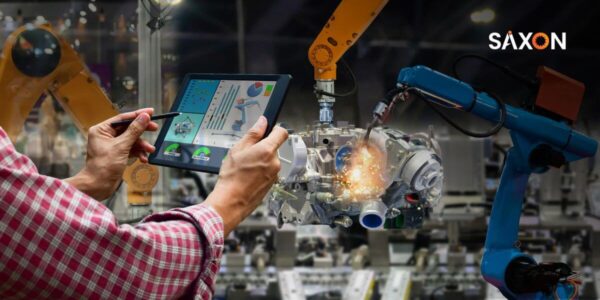Data analytics is the key to deciphering trends, uncovering insights, and delivering excellence. However, data analytics is resource intensive. Enter generative AI, a revolutionary technology that can transform how you extract value from your enterprise data.
The launch of ChatGPT, a generative AI model, by OpenAI in November 2021 marks a turning point in Artificial Intelligence’s public adoption. A generative AI (gen AI) model can generate new content – images, text, or entire products. How is it different, you ask? Previous machine learning models can only make predictions and do classifications based on their training data. On the other hand, generative AI can create totally new content, replicating human-like thinking.
With its ability to read, comprehend, and generate content, generative AI is transforming enterprise operations. Let us explore how gen AI can transform four key aspects of data analytics, the cornerstone of informed decision-making.
Want to learn how generative AI can transform your enterprise operations? Our e-book, Breaking down barriers with Generative AI, helps you demystify how you can leverage Generative AI to stay relevant in the AI-driven digital era. Download your free copy of the e-book here.
Four aspects of data analytics generative AI can transform
Data preparation
Data preparation is time- and resource-intensive. A survey by Anaconda reported that data scientists spend almost half of their time wrangling data. In their report, Anaconda wrote, “Data preparation and cleansing takes valuable time away from real data science work and has a negative impact on overall job satisfaction.” While consuming time, data preparation also impacts employee morale. Other studies reported that 76% of data scientists feel data preparation is the least enjoyable part of their work.

How data scientists spend their time
Generative AI has the potential to transform data preparation and redefine the data analytics value chain. Gen AI can play a major role in imputing missing values, standardizing formats, and identifying outliers, ensuring a higher level of data quality and consistency. By automating these tasks, data engineers and analysts can channel their energy toward higher-level decision-making.
Gen AI also helps with the intricate process of data transformation. As an enterprise, you collect data from a variety of sources in different formats. For example, you have customer data, sales data, inventory data, etc. This data is in structured and unstructured formats, making it challenging for professionals to integrate these data sources. Gen AI bridges the gap by facilitating seamless data transformation between structured and unstructured formats. This capability ensures that data can be harnessed effectively for analysis, irrespective of its original form.
Data analysis
The purpose of data analysis is to find answers to questions. The more questions you ask, the better answers you find, empowering your decision-making. It requires domain knowledge and business acumen. Here is the catch. You may have predetermined or biased notions, which you will eventually incorporate into your questions. Or you may face challenges in looking at the data from a new perspective. This can be a lost opportunity for your business.
Another challenge in data analysis is coding. Data professionals spend more time coding for prediction models, workflows, and algorithms. While these are important aspects, automating coding can give data professionals more time to think strategically and creatively, unleashing more power from data.
Generative AI solves both these problems in data analysis. Gen AI can generate code in any programming language, enabling non-programmers to write programs in less time. This is a boon for developers as well. Microsoft launched GitHub Copilot, a generative AI model for GitHub. GitHub Copilot saves time and effort for developers, allowing them to focus on more productive things. In a survey by GitHub, 96% of developers responded that they are faster with repetitive tasks than before using gen AI in coding. The models created by gen AI can think beyond our human brain, asking more relevant questions and extracting more valuable insights.
Extracting insights
Extracting insights from data involves challenges such as complex data patterns, time-intensive analysis, biases, scalability constraints, contextual limitations, resource shortages, expertise demands, and the art of communicating insights effectively. However, the emergence of generative AI holds the promise of addressing these challenges and ushering in a transformative era for data analytics.
Traditional methods struggle to uncover subtle relationships, while generative AI’s innate ability to automatically detect nuanced trends can significantly enhance the accuracy and depth of insights derived from data.
Manual data analysis is time-consuming. Gen AI expedited analysis with its ability to automate data preprocessing, feature selection, and model building.
Reporting
Generative AI is reshaping the landscape of reporting by streamlining processes and elevating the impact of insights. Automated report generation is a standout feature, converting data into text effortlessly, freeing analysts to focus on analysis. Contextualization adds strategic alignment, ensuring insights resonate with business goals. Customization reaches new levels as reports cater to diverse stakeholders with varying preferences.
Real-time reporting gains prominence as gen AI updates data dynamically, empowering timely decision-making. Gen AI’s storytelling capabilities weave narratives around data and aid comprehension. Visual aids further enhance clarity, simplifying complex patterns. Consistency and compliance are ensured, reducing errors and aligning with standards. Generative AI also facilitates personalized reporting interfaces, enabling users to interact naturally with data for customized insights.
Want to leverage generative AI in your data analytics journey?
Generative AI’s power lies in its ability to streamline data preparation, decode intricate patterns, and amplify decision-making. It ushers in a new era where insights are not just valuable but swiftly accessible, empowering businesses to navigate the complex terrain of today’s data-driven landscape. Yet, embracing generative AI isn’t without its challenges. The integration demands technical expertise and a deep understanding of its capabilities. That’s where we step in.
At Saxon AI, we are helping small and medium-scale businesses discover and tap into the opportunities created by generative AI. Through InnovAIte, our interactive workshop on leveraging generative AI, our experts demystify generative AI for you and empower you to integrate it into your data analytics strategy seamlessly.
Join InnovAIte to explore how you can transform your data analytics journey with generative AI. Sign up here.
You can follow us on LinkedIn and Medium to never miss an update.
















